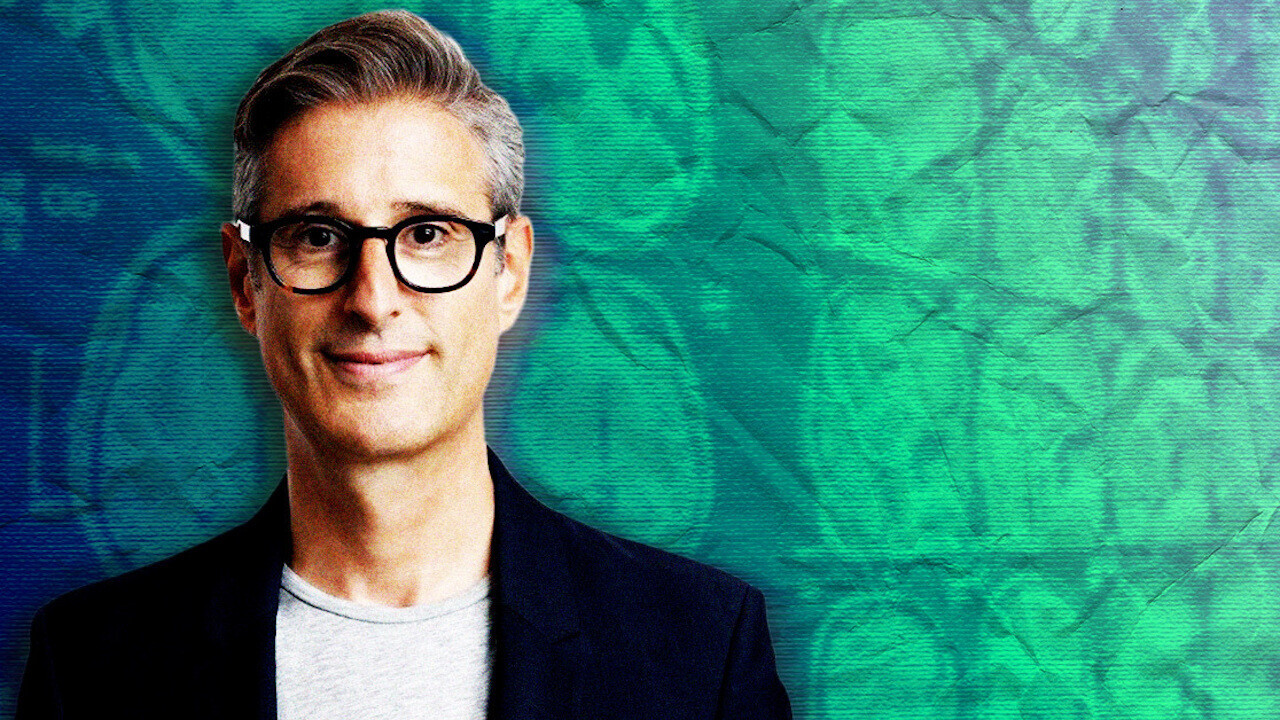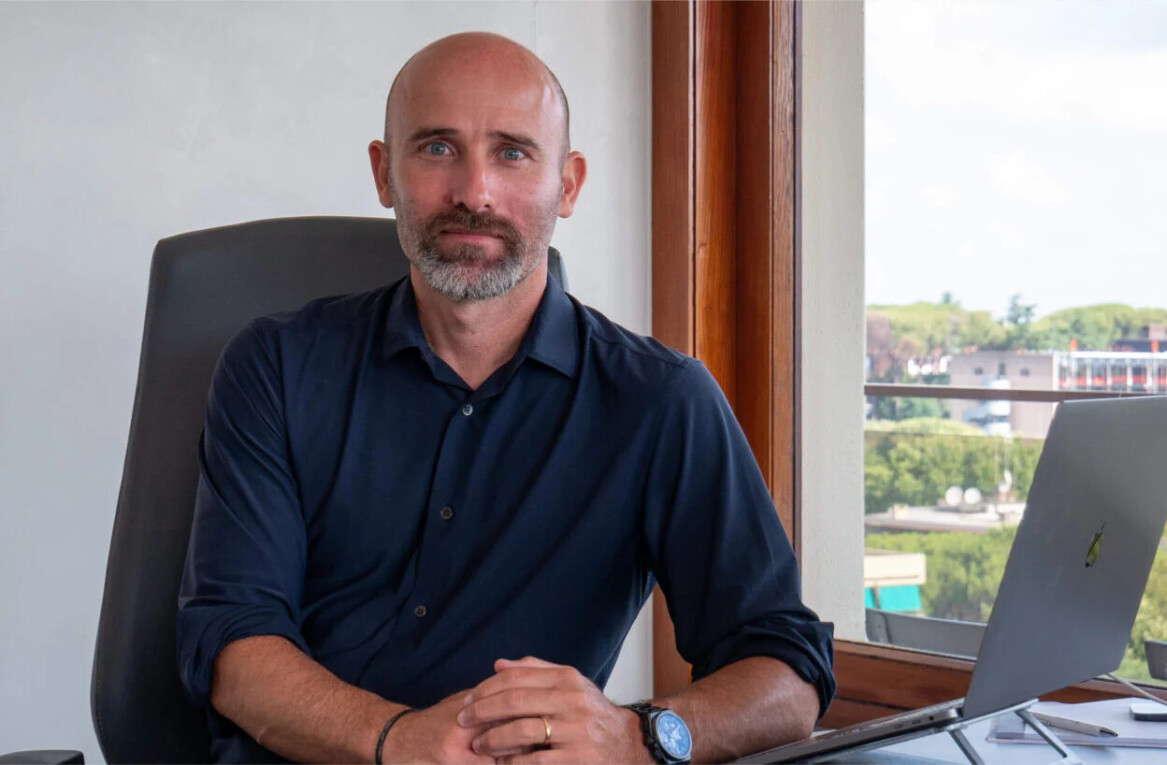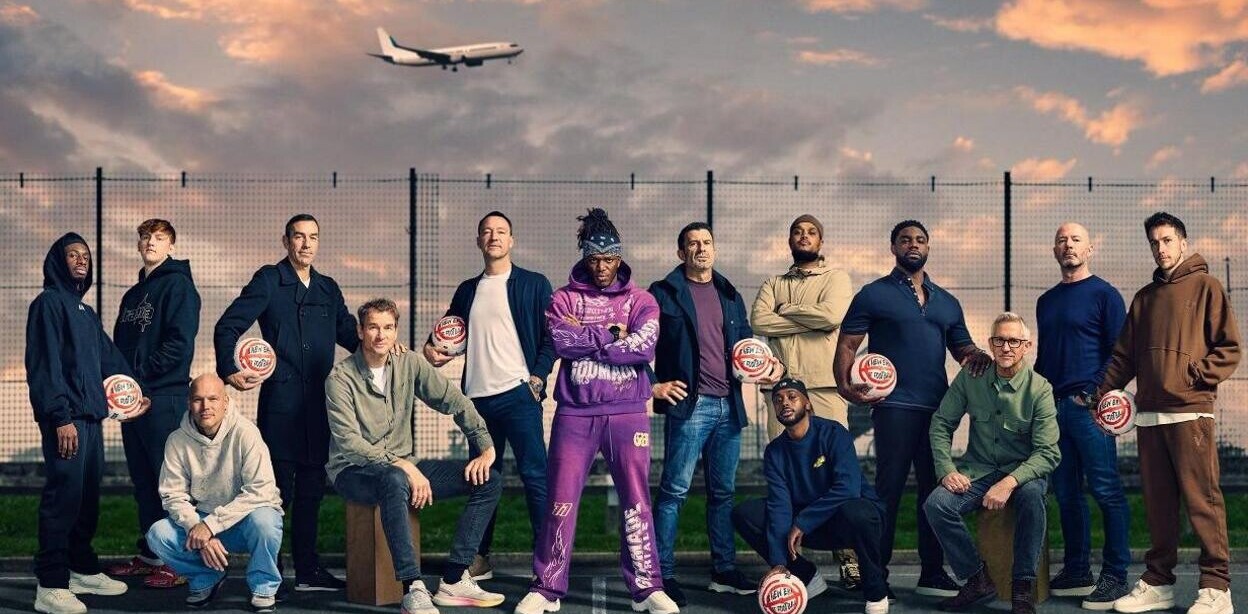
Did you know François Kress is speaking at TNW Conference this summer? Check out the full list of speakers here.
Louis Vuitton, Fendi, Bulgari, Prada, Carolina Herrera, Miu Miu. This might sound like a bar from a standard rap song, but it’s actually a list of companies where François Kress has held leadership positions in his long career in the luxury industry. Then, an unexpected but welcome opportunity presented itself.
“I was really suffering from luxury fashion fatigue, and decided to move on and start this project,” he tells TNW over Zoom.
At the invitation of a friendly venture capitalist, Kress joined Feelmore labs as co-founder and CEO, to develop a unique, category-defining type of wearable: Cove. It’s a wearable device that relies on the science of neurostimulation, sending specific vibrations to specific sensors behind your ears to “help you feel calm and emotionally balanced,” according to the website.
Curious about his switch from high fashion (“There was a time I had two secretaries and obviously a driver and everything”) to high tech (“Now I have to change the toilet paper at the office myself”), and what experience he took along with him, we spoke to Kress from his apartment in New York about the lessons tech can learn from the most luxurious of luxury brands on the planet.
Dressed in a casual navy blue long-sleeve with perfectly coiffed silver-gray hair and thick-rimmed glasses, it’s easier to see Kress managing Fendi than a high-tech wearable company. But looks, in this case, are deceiving.
Kress’ background, before being recruited by Bernard Arnault of LVMH (Louis Vuitton Moet Hennessy), was in theoretical physics, with a special interest in topology — hardcore math describing complex dynamic geometric problems.
“For me, it was like going back, because after high school I studied intense theoretical stuff for 8 years.”
Move slow, do things well
During his career in luxury, Kress was sucked into tech when he was offered a board position at a biopharmaceutical company, and was surprised by the fast pace of tech companies.
“Coming from big luxury groups, which have hundreds of years of history and where everything is very slow and very careful, to this fast-paced biotech world and startups and VC money was a shock.”
After meeting some VCs through his board position, he agreed to co-found Feelmore Labs, where he could finally bring together his experience in rigorous science from his science degrees, and dedication to craftsmanship from his career in luxury. This also allowed him to bypass some long-held beliefs about the pace of business that many founders face
“Just put an MVP on the market. Even if it’s crappy, you know, you will learn as you iterate,” he says was something he’d hear often. “But I was very determined not to get rushed, or half-bake the technology for the sake of this kind of iterative process.”
Listen to your customers less
The iterative process couldn’t be more removed from the process in high-end fashion and luxury, Kress tells us.
“It’s the opposite of what you hear in luxury and fashion, at least at the top end of those products. There, it’s ‘don’t listen to your customers, they don’t know what they want.’ If you ask customers what they want to see on the runway, you will always see the same black dress coming out of every workshop. So for me, that was a complete shift.”

Kress says he’s trying to find a middle ground between not listening to customers at all, and letting customers determine the whole product. “I think like everything in life, there is a middle point, right? We could bring a little more finesse into tech. Apple is a good example of a brand which had very strong aesthetic content and a strong vision, which was not purely based on practical aspects.”
Not everything needs to be practical
A total focus on practicality can be a flaw, he thinks. “It sometimes makes me sick when all I hear is like, ‘Oh, what is the problem, what is the solution.’ That’s cool, and you can make nice little projects that way. But you’re never going to build greatness out of solving practical problems.”
Kress believes firmly that for building a new category of wearable, one that actively affects your mood, versus one that just registers your vital signs, you need to do more than just focus on the functionality. To do this, you need to look at the whole picture, and build the brand holistically from the get-go.
Louis Vuitton Fall/Winter 2021 Airplane Bag by Virgil Abloh
?$39,000 pic.twitter.com/GEUmoylYqD
— SAINT (@saint) April 2, 2021
“If you look at the functionality of fashion, like a bag is to carry your stuff from point A to point B, then there is no reason to spend thousands of dollars on that, because you could do it with a plastic bag, right?”
The attractiveness of a product goes way beyond the functionality of the product, he tells us. Although he’s the first to admit that Cove is still far from being acknowledged as an item with more intangible value. “We are too young, the category is still too young,” he says.
Perfection, perfection, perfection
Another lesson Kress brought along from luxury brands is the obsession with quality and perfection. In the case of Cove, Kress says they spent way more time and money on first proving the science of the device, and then perfecting the device itself than strictly necessary.

“We added little hinges in the design to accommodate potentially wider heads, we added a heart rate sensor, a motion sensor, which an MVP probably could have lived without. All these things made the whole design and mechanical engineering much more complex, but they add a marginal impact, which people may not even see. There are a lot of subconscious signs that you send in luxury that overall build the dream.”
Their goal for Kress was to build something users forget they’re wearing, and that has perfected “even things you don’t see, because I think in luxury the value is in execution. Everything in luxury is overdone, look at the stores, they are just perfect. So we spent time perfecting the device.”
Don’t price yourself too cheaply
While Cove is not a luxury device per se, it did not come cheap. The launching price was 490 dollars, in a market where most wearables set you back around 300.
“We were widely criticized for that, to be honest. As an unknown entity, it’s hard to start at that price. But we decided to do it anyway,” he says. Obviously, there was a reasoning behind the price point.
“There is a psychological barrier to price in general that you can never go up in price, right? If you start low just for the sake of moving merchandise, you will stay there,” he says.
But there’s more to it than just keeping margins up. “First of all, for a neuro-product, which relies certainly on the placebo effect, I believe that the price matters. It’s like when you go to the shrink, we all know that paying is part of the therapy. I think the price is part of the reflection of the seriousness of the product — within limits, obviously.”
Service is everything
Kress did mention that Cove would soon be offered as a monthly subscription service soon, partly to reduce the sticker shock of the high price. But it’s also to reflect that the company offers exceptional service — which is another lesson he brought along from luxury.
“Since we are in the mental wellness field, service is difficult sometimes. People who call us don’t only talk about the functionality, you get people who want to talk about their problems. And no, we don’t offer therapy, but we hire people who are subtle enough to address all that. We have been praised a lot for that, that’s super important.”
The company also prides itself on being lenient on return and replacement policies, which come at a cost, but “that’s the least we can do for people who have the courage to try a new technology and take a leap of faith to try something unknown.”
Get the TNW newsletter
Get the most important tech news in your inbox each week.




